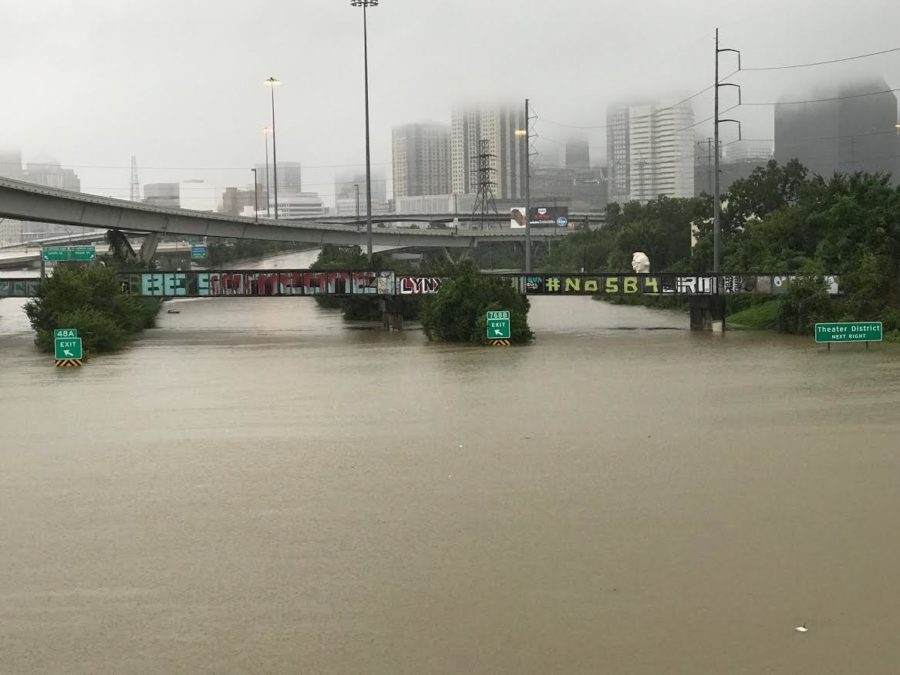Climate change linked to wetter, more intense tropical cyclones
harvey hurricane
July 28, 2019
Warmer waters are one of the key ingredients for the development of more intense tropical cyclones, and climate change caused by human activity is warming Earth’s oceans.
In its 2013 report, the Intergovernmental Panel on Climate Change’s Fifth Assessment Report concluded “it is extremely likely that human influence has been the dominant cause of the observed [global] warming since the mid-20th century.”
Effects of anthropogenic climate change — or human-caused climate change — include those warmer ocean temperatures and rising sea levels.
Those rising sea levels have the potential to augment storm surges that accompany tropical cyclones such as Hurricane Katrina in 2005 when they make landfall. Katrina breached 53 levees in the New Orleans area, as the storm killed more than 1,200 people on the United States Gulf Coast.
Alex Gonzalez, an assistant professor of geological and atmospheric sciences, said flooding causes the most amount of deaths in the United States related to weather.
“It’s definitely the number one thing — and in tropical cyclones as well,” Gonzalez said. “Of course, if you get a Category 5 hurricane, you’re not going to ignore the effects of wind and potential tornadoes from the hurricane.”
It is difficult to determine whether an individual tropical cyclone developed a certain way due to anthropogenic climate change. However, the long-term trend points to climate change causing increased intensity in storms and that it is intensifying their effects.
Hurricane Harvey made landfall in August 2017 on the Texas Gulf Coast, causing catastrophic flooding and tying Katrina as the costliest Atlantic Hurricane on record, causing at least $125 billion in damages.
Michael J. Wehner and Mark D Risser, scientists with the Lawrence Berkeley National Laboratory, published a paper reporting the rainfall Harvey caused was up to 38% higher than if there were no ongoing climate change. Harvey caused more than 60 inches of rain in isolated areas.
Translation speed, or the rate at which hurricanes move, has slowed North Atlantic tropical cyclones by up to 16% over land during the period spanning 1949 to 2016, according to research by James Kossin, an atmospheric research scientist with the National Oceanic and Atmospheric Association (NOAA).
“[Slowdown in translation speed is] very likely to have compounded, and possibly dominated, any increases in local rainfall totals that may have occurred as a result of increased tropical-cyclone rain rates,” Kossin wrote in his paper.
Gonzalez said there has been “good evidence” coming out within the past few years on tropical cyclones and how their translation speed is decreasing.
“That is starting to become a little bit more clear […] and we see now some cases where not only translation speed decreased for some of these storms like Florence and Harvey, but rainfall rates were really high, and higher likely due to climate change,” Gonzalez said.
Gonzalez stressed climate and climate change are statistical-based fields, and a long-record is necessary to say with confidence whether something is increasing. However, he added that confidence exists for global temperature increases.
“We know with confidence the temperature has been increasing […] there has been clear evidence it is anthropogenic caused,” Gonzalez said.







